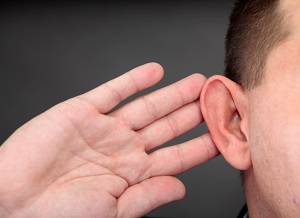 We like to think we are good listeners, but I’m smart enough to know that even I miss things. Being a good listener is more than just allowing the other person to speak and you being nearby. You have to take in what the person is saying and sometimes go deeper. You may have to read between the lines, ask questions, and offer support. You may even have to bite your tongue, resist giving suggestions, and just truly listen, reflect what you are hearing, and ask the person if you understand the situation correctly.
We like to think we are good listeners, but I’m smart enough to know that even I miss things. Being a good listener is more than just allowing the other person to speak and you being nearby. You have to take in what the person is saying and sometimes go deeper. You may have to read between the lines, ask questions, and offer support. You may even have to bite your tongue, resist giving suggestions, and just truly listen, reflect what you are hearing, and ask the person if you understand the situation correctly.
Sometimes, you may be confused as to why the other person is sharing with you. Does he or she want you to just be there and listen? Does he or she want your opinion and help in problem-solving his or her struggle? I can tell you that a lot of us guys are great at coming up with ideas for you, so if this is what you are looking for, you may be in for a treat. But what if you need to just vent? It’s OK to get yourself out of an uncomfortable situation (say, a disagreement at work or with a neighbor), know that is not the time or place to sound off, and find a friend or significant other to bend an ear a bit and blow off some steam.
If you are not looking for advice in those moments, it may be important to share this upfront. “Hey! Can I vent with you a little bit?” you might say. “I had a frustrating day at work. I’m not looking for advice right now, but I could really use your support.” This is a perfect start to the conversation. If I am in a position to just listen, I can best support this person without having to come up with a game plan. If I am confused, I can ask questions and even share how I might feel in that situation: “Wow! That sounds frustrating. I can imagine that was not a comfortable moment.” Not that there is a specific way to respond in every situation, but since I care about the other person, the sharer will know of my concern in being there.
The idea of being mindful can be challenging, though. Buddha noted mindfulness as a key to enlightenment. But it takes practice. When I am present for the sharer, I am not thinking about what I am going to do later in the day or about the meal from earlier. I am in that moment with the person, paying attention to what he or she is experiencing, both in actual words and emotion. Unfortunately, I fear our everyday lives are over-full of activities and stressors, both good and bad. We are constantly being bombarded by stimuli—conversations around us, work expectations, family members’ activities, places to go, people to see, television, radio, game systems, a trillion new phone apps, etc.—all competing for our attention. This makes it too easy to drift in and out of conversations with all the ideas in our minds.
We need to resist the urge to drift away from the person or situation at hand, especially if we want to have meaningful relationships in which we feel supported by others and they feel supported by us. If you find it difficult to remain focused, do some reflection on all that is going on in your life and evaluate if there is too much. If so, perhaps you can cut back on some of those things. Even a few reductions may help you both relax more and find it easier to focus on the moment. Furthermore, tools such as meditation and other relaxation techniques can allow you to give your mind a rest for a bit as well as help you better manage stressful times that can command your attention.

The preceding article was solely written by the author named above. Any views and opinions expressed are not necessarily shared by GoodTherapy.org. Questions or concerns about the preceding article can be directed to the author or posted as a comment below.

 Communication Problems: Rooting Out the Real Issue
Communication Problems: Rooting Out the Real Issue How to Express Your Feelings in a Respectful Way
How to Express Your Feelings in a Respectful Way How to Effectively Approach Your Partner About Relationship Issues
How to Effectively Approach Your Partner About Relationship Issues

